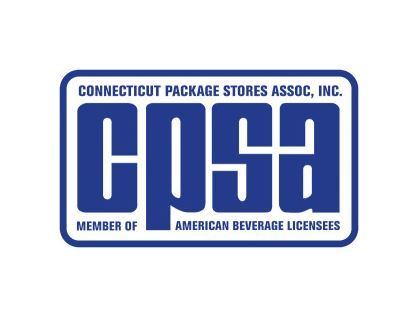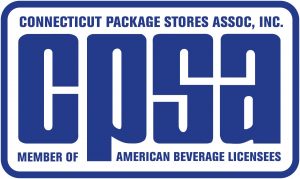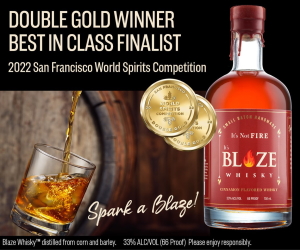

Carroll J. Hughes, Executive Director, Connecticut Package Store Association.
By Carroll J. Hughes, Executive Director, CPSA
At the close of the 2019 legislative session, The Connecticut Package Stores Association (CPSA) had successfully defeated several proposed bills that would have cost the alcohol beverage industry millions of dollars in taxes, fees and other ancillary expenses.
Early in the session, CPSA faced several issues proposed in various committees. One proposal CPSA defeated would have increased the number of permits a package store could own from five to 10.
Another defeated proposal would have allowed up to 10 products identified by brand to be discounted at 10% below cost per month. The way the language was drafted, this proposal would have effectively allowed all of the bestselling beer and spirits products in every store over the entire market in Connecticut to be discounted every month. The same bill would have allowed out-of-state retailers to market and sell directly to Connecticut consumers without limit or any provision to monitor or collect appropriate taxes.
Additionally, the offering of free goods to retailer permittees by distributors would have been allowed, which is a practice almost uniformly banned in other states as a corrupt practice, where fines and other penalties have been levied in the past.
One of the most significant proposals affecting the liquor industry, primarily retailer package stores and wine and spirits wholesalers, was the Governor’s proposal in his budget to impose a five-cent bottle tax on nips, and a 25 cent per bottle tax on every other size container. A similar proposal almost passed in the Environment Committee to place all wine and spirits containers in the bottle bill. A broad coalition of environmental groups, product profiteers, municipalities and others pushed this issue into the final budget proposal a week before the session ended, but were unsuccessful.
The Finance Committee had already rejected the bottle bill mandate for wine and spirts bottles, and had suggested a 10% increase in the excise tax on alcohol, excluding beer, which did pass and will take effect October 1, 2019, and will include an inventory that day of all goods in stock. The excise tax increase would result in millions of dollars less in cost to the industry than the average increase of 25 cents per bottle (based on the liquid quantity excise tax versus fixed cost per bottle). A nip bottle tax of five cents versus the apportionment of excise tax versus a tax on the number sold each year is millions of dollars less than it could have been. The budget bill also requires sellers to file a floor inventory report with the Department of Revenue Services (DRS) and pay the tax due on the inventory by November 15, 2019.
The reality of wine and spirits bottles being included in the bottle bill would have effectively cost retailers and wholesalers an estimated 150 million dollars to implement. From hiring drivers, to purchasing new equipment and new trucks – a whole new system would have to be developed at the expense of small business owners. Unlike the bottle bill, which includes beer cans, most containers go to food stores for redemption. Wine and spirits bottles would have to go back to only package stores, who would be forced to handle all of them except those used by restaurants.
In order to make room for these returned bottles, package stores would have been forced to reduce the number of products available for sale. This would reduce gross sales, and force stores to only carry high turnover items, forcing small-batch and some locally manufactured products off their shelves.
Other issues that will negatively affect retailers include an increase in the minimum wage to $15 an hour in increments over five years beginning October 1 of this year ($11 on October 1, 2019, $12 on September 1, 2020, $13 on August 1, 2021, $14 on July 1, 2022, and $15 on June 1, 2023), and the new paid family leave program, which extends leave to 12 weeks for “qualified employees.” There is no minimum eligibility requirement for hours worked and the proposal, which takes effect in January 2022, will be funded by an employee payroll tax of 0.5% beginning January 1, 2021. Additionally, there will be a 10 cent per bag tax on single-use plastic bags beginning August 1 of this year, and they will be banned after July 1, 2021. Most package stores currently utilize paper bags and recycle boxes from product deliveries more than other retailers.
 Some positive outcomes of the session included the repeal of the business entity tax of 250 dollars, which all premises pay every two years. The minimum markup on cigarettes was increased in the final tax bill from eight to 18 cents. This not only results in an increased benefit to retailers, but because of the higher cost, the state gains an average of over 5.5 million dollars in new sales tax per year.
Some positive outcomes of the session included the repeal of the business entity tax of 250 dollars, which all premises pay every two years. The minimum markup on cigarettes was increased in the final tax bill from eight to 18 cents. This not only results in an increased benefit to retailers, but because of the higher cost, the state gains an average of over 5.5 million dollars in new sales tax per year.
The only local businesses which had their sales tax increased were restaurants and all other preparers of food with a 1% increase. This could have been placed on any retail class of store, but was limited to the food service industry. The tax will yield 20 million dollars more in sales tax on the one industry alone.
The final bill affecting the alcohol beverage industry, Senate Bill (S.B.) 647 “An Act Streamlining the Liquor Control Act,” passed the legislature in the final days of session. Thanks to the diligence and hard work of CPSA’s staff and in collaboration with other industry members, the bill was amended drastically from its original form, which would have been very detrimental to the retail and wholesale industries. Its original language included provisions which would have allowed the sale of beer in box stores and the aforementioned sale of wine by out-of-state retailers directly to consumers very few limitations, among other dangerous proposals. The bill as amended and passed was geared toward assisting the local manufacturers of beer, wine and spirits.
Essentially, S.B. 647 provides some tax advantages to Connecticut’s manufacturers, increases on premise sales quantities from nine liters to nine gallons, establishes a “Connecticut craft café” permit, which allows manufacturer permittees to sell other Connecticut manufactured alcohol for on-premise consumption, and allows those with a gift basket permit to include beer in such baskets. The bill was supported by CPSA, whose members sell many locally made products, which are distributed through wholesalers or directly by manufacturers.
Overall, despite many aggressive campaigns by opponents, the CPSA team and its members were able to successfully defeat the proposals mentioned, which would have devastated the local retail package store industry. We thank our members and industry partners for their support in another successful legislative session for the retail alcohol beverage industry in Connecticut.











